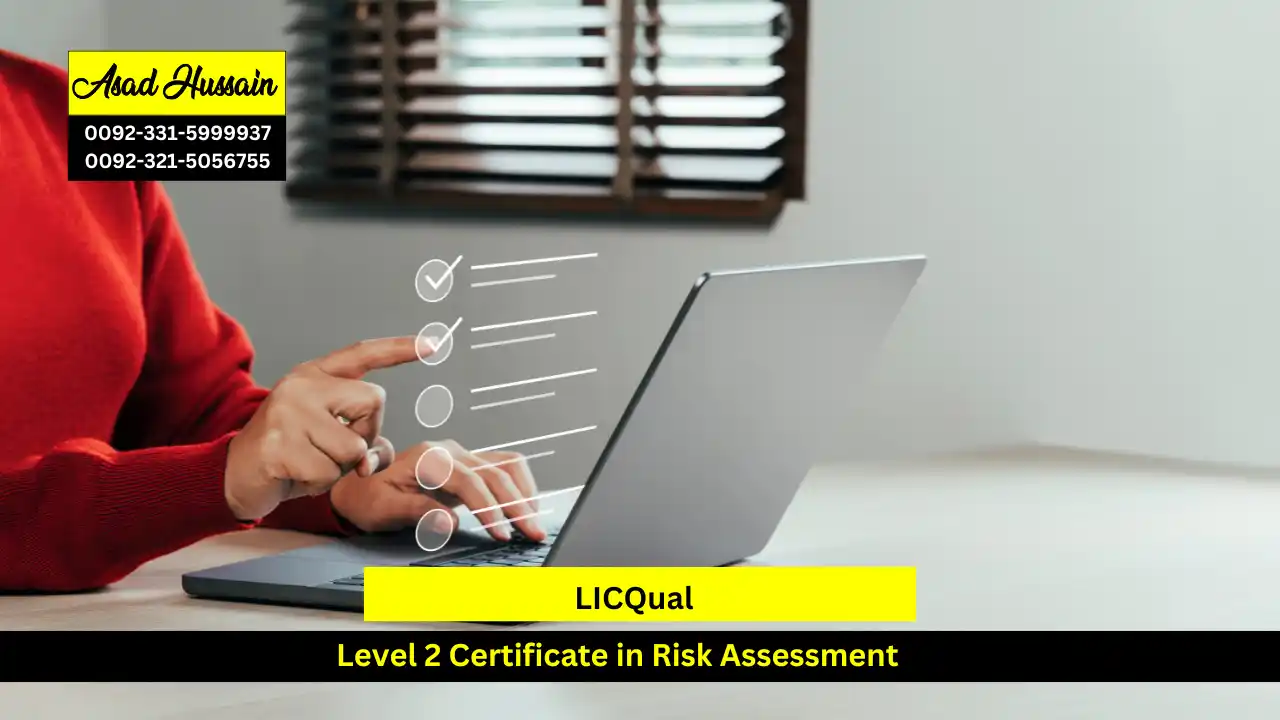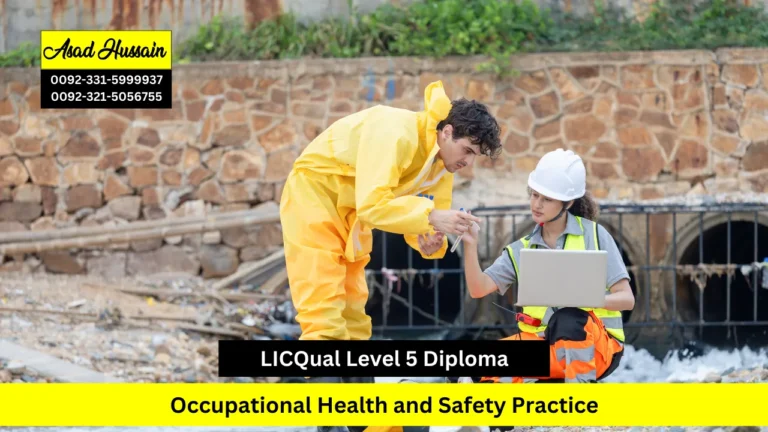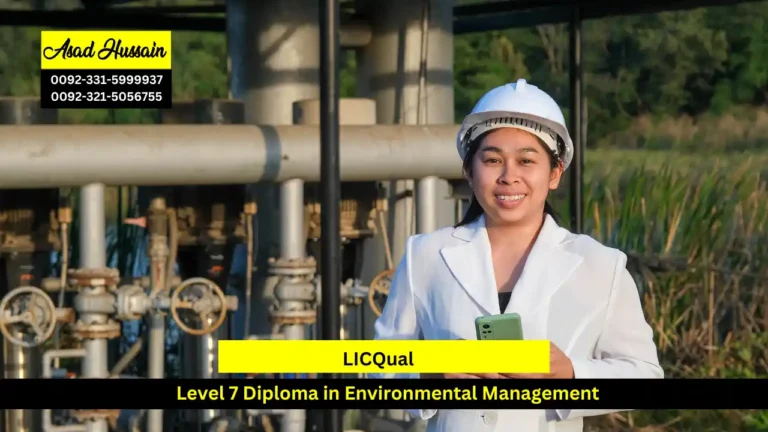In today’s fast-paced and ever-evolving workplace environments, ensuring safety and managing risks effectively are paramount. The Level 2 Certificate in Risk Assessment is designed to equip individuals with the foundational knowledge and skills needed to identify, evaluate, and mitigate risks in various settings. Whether you’re a professional aiming to enhance your expertise or a business looking to boost your team’s competency, this qualification serves as a valuable asset.
The Level 2 Certificate in Risk Assessment is a qualification that provides learners with the skills required to conduct effective risk assessments. It focuses on understanding the principles of risk management and applying them to identify potential hazards, assess risks, and implement control measures. This qualification is ideal for those who are new to risk assessment or those who wish to formalize their skills.
The Level 2 Certificate in Risk Assessment is an essential qualification for anyone involved in health and safety management or those looking to develop their risk assessment capabilities. By gaining a comprehensive understanding of risk assessment principles, hazard identification, risk evaluation, and control measures, individuals and organizations can significantly improve their safety practices and risk management strategies.
If you’re considering this qualification, it represents a step towards creating safer work environments and advancing your career in health and safety management.
Program Highlights
Mandatory Units
- Introduction to Risk Assessment
- Legal and Regulatory Framework
- Hazard Identification and Risk Analysis
- Risk Evaluation and Control Measures
- Risk Assessment Report and Communication
- 1. Basic Educational Background:
- General Education: Candidates should have a basic level of education, typically equivalent to a GCSE or equivalent. This ensures that learners have the necessary literacy and numeracy skills to comprehend and apply the course content.
- 2. Language Proficiency:
- English Language Skills: Proficiency in English is required as the course materials, assessments, and examinations are conducted in English. Candidates should be able to read, write, and understand English at a level that allows them to engage with the course effectively.
- 3. Workplace Experience (Preferred but Not Required):
- Relevant Experience: While not mandatory, some experience in a workplace setting can be beneficial. Practical experience in a professional environment can help candidates relate course concepts to real-world scenarios.
- 4. Interest in Risk Management:
- Motivation: A genuine interest in risk management and safety practices is essential. Candidates should be motivated to learn about identifying hazards, assessing risks, and implementing control measures.
- 5. Technical Requirements:
- Access to Technology: For online or blended learning formats, candidates must have access to a computer or device with internet connectivity to access course materials, participate in online sessions, and complete assessments.
- 6. Basic Computer Skills (If Applicable):
- Digital Literacy: Basic computer skills are necessary for navigating online learning platforms, submitting assignments, and accessing digital resources. Familiarity with common software applications such as word processors and spreadsheets is useful.
- 7. Health and Safety Knowledge (Optional):
- Pre-existing Knowledge: Although not a requirement, having some prior knowledge of health and safety principles can be advantageous. It may help candidates grasp the course material more easily.
- Additional Notes:
- Pre-Course Assessment: Some training providers may offer a pre-course assessment to ensure that candidates meet the basic requirements and are prepared for the course content.
- Provider-Specific Requirements: Entry requirements can vary slightly depending on the training provider or institution offering the Level 2 Certificate. It’s advisable to check with the specific provider for any additional prerequisites or criteria.
Introduction to Risk Assessment
- Understanding Risk Assessment: Explain the purpose and importance of risk assessment in various settings.
- Core Concepts: Describe key concepts and terms related to risk assessment, including risk, hazard, and control measures.
- Risk Assessment Process: Outline the steps involved in conducting a risk assessment from start to finish.
Legal and Regulatory Framework
- Regulatory Requirements: Identify and describe the legal requirements and regulations related to risk assessment and health and safety.
- Compliance: Explain how to ensure compliance with relevant legislation and standards.
- Roles and Responsibilities: Understand the roles and responsibilities of employers, employees, and other stakeholders in risk management.
Hazard Identification and Risk Analysis
- Types of Hazards: Identify different types of hazards (physical, chemical, biological, ergonomic) and their potential impacts.
- Hazard Identification Techniques: Apply techniques for identifying hazards, such as inspections, audits, and consultations.
- Risk Analysis: Conduct a thorough analysis of risks by evaluating the likelihood and potential impact of identified hazards.
Risk Evaluation and Control Measures
- Risk Evaluation: Evaluate the level of risk associated with identified hazards, using qualitative and quantitative methods.
- Control Measures: Describe various strategies for controlling and mitigating risks, including elimination, substitution, engineering controls, administrative controls, and personal protective equipment.
- Implementation: Develop and implement effective control measures to reduce or manage risks.
Risk Assessment Report and Communication
- Report Writing: Prepare a comprehensive risk assessment report, including findings, risk evaluations, and recommended control measures.
- Effective Communication: Communicate risk assessment findings and recommendations clearly to stakeholders, including employees and management.
- Action Plans: Develop and present action plans for implementing control measures and monitoring their effectiveness.
The Level 2 Certificate in Risk Assessment is ideal for a diverse range of individuals who are keen to enhance their understanding of risk management and contribute to workplace safety. It is particularly suited for employees and supervisors who are involved in health and safety roles, as well as those new to the field of risk assessment. Additionally, it benefits individuals aiming to formalize their skills or gain a recognized qualification to advance their careers in safety management. The course is also valuable for managers and team leaders responsible for implementing safety protocols and ensuring compliance with legal requirements. Overall, this course is designed for anyone looking to build a solid foundation in risk assessment and improve their ability to identify, evaluate, and manage risks effectively.







